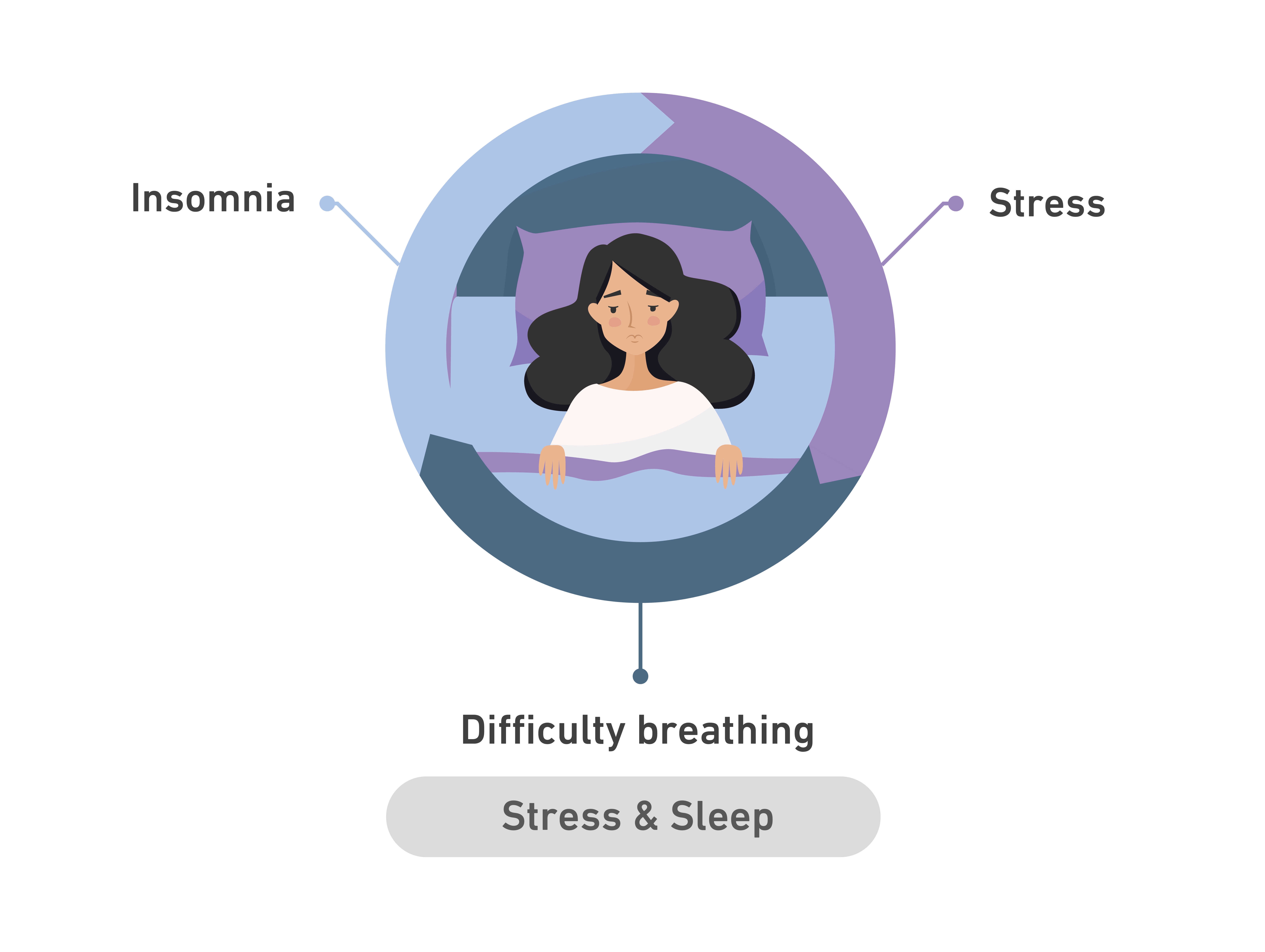
Lesson objective:
In this lesson, we discuss the negative effects that stress might have on sleep, and how that creates an obstacle in the creation and preservation of new memories.
From the heart to the lungs, chronic stress has many effects on the body.
Chronic stress also affects sleep: both quantity and quality.
When your body is on such high alert all the time, and when it is sustaining an active stress response, it becomes very hard not only to breathe, but also to sleep.
A critical part of sleeping is taking slow, deep breaths.
When your body has irregular waking breath, meaning breaths while you’re awake, it becomes even more difficult to breathe deeply during sleep.
In order to breathe deeply during sleep, you need to convince your brain and body that it is safe to switch from the sympathetic to the parasympathetic system, so that your body can rest and relax.
In the context of constant threat and stress, the vigilance needed during daytime often extends into night time. The mode of hyperarousal and hypervigilance continues in the sleeping brain.
Sleeplessness and stress when combined, create a vicious cycle.
When you’re stressed, you have a really hard time falling asleep, and when you don’t get enough sleep, you may feel even more stressed, therefore making it harder to fall asleep the next night.
Sleep is a necessary function for the body to rest, reset, and grow.
Of course, sleep allows all bodily systems to rest and conserve energy, but sleep also has important psychological benefits.
When we sleep, the brain does work that may not happen when you’re constantly receiving inputs and sensations.
Sleep helps you make memories. 
Sleep is crucial for memory consolidation, which is the process by which the brain takes our day-to-day experiences or stressful experiences and categorizes them into long term memories.
Everything you see, touch, smell, and feel gets consolidated and organized into memories that will inform the future predictions your brain makes.
In this way, stress affects memory.
Stress not only causes insomnia, but it can also contribute to the difficulty of forming and maintaining new memories, which are critical for your brain’s predictions and for navigating a complex and demanding world.